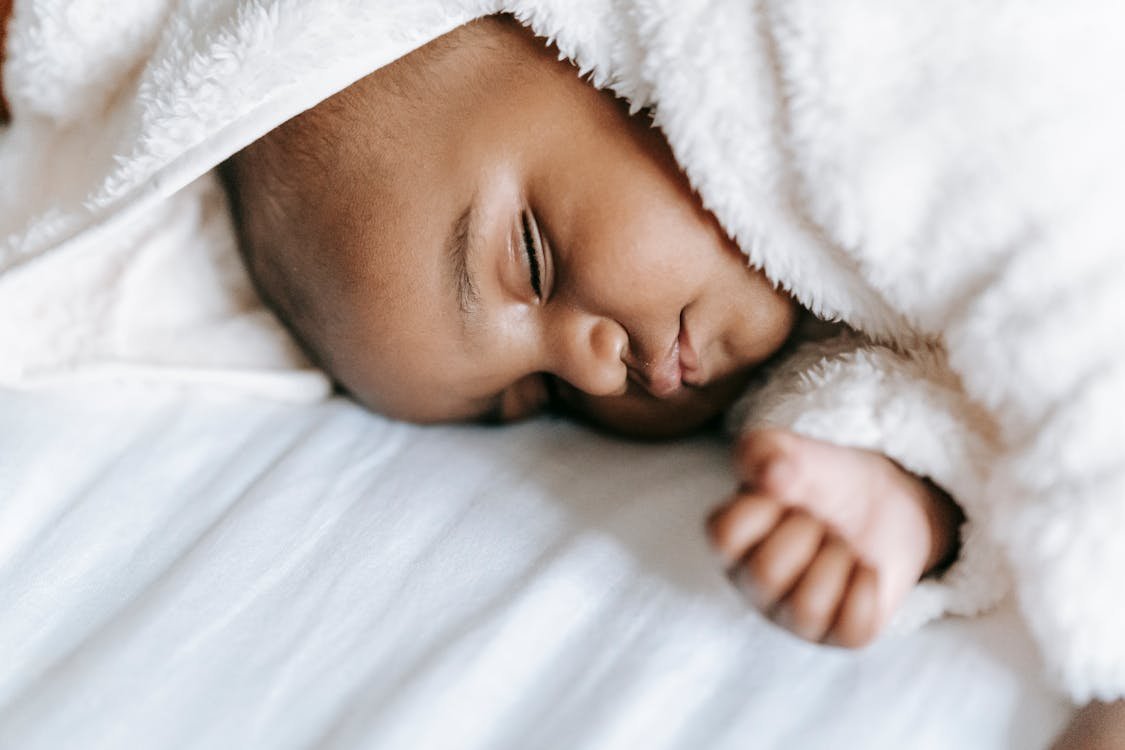One of the biggest questions parents ask when considering or starting this journey is, “how long does sleep training take?” You’ve likely heard varied stories – some babies adapt in a few nights, while for others, it seems to stretch into weeks. The truth is, there isn’t a single magic number. However, understanding the typical process and the factors that influence how long sleep training takes can help you set realistic expectations. This, in turn, allows you to navigate the journey with more confidence. This guide explores what parents can generally expect.
What Does “Sleep Training Has Worked” Actually Mean?
Before discussing duration, it’s important to define what success looks like. Generally, sleep training is considered effective when your baby can:
- Fall asleep independently at bedtime. This means without extensive soothing like rocking or feeding to sleep.
- Settle themselves back to sleep if they wake during the night (for age-appropriate wakings, as newborns will still need night feeds).
- Nap more consistently, if nap training is also part of your plan.
Typical Timelines: Understanding How Long Sleep Training Takes
While every baby is wonderfully unique, here’s a general idea of how long sleep training takes for many families:
- Initial Improvement (First Few Nights to a Week): Many parents observe noticeable improvements within 3 to 7 nights. This often translates to less crying at bedtime and longer initial stretches of sleep. Indeed, the first few nights can be the most challenging. However, consistency usually pays off relatively quickly with these initial positive changes.
- More Consistent Results (1-2 Weeks): By the end of the first or second week, many babies are falling asleep more easily. They also tend to sleep for longer periods more consistently. Furthermore, night wakings that aren’t related to hunger should be significantly reducing.
- Solidifying Habits (Several Weeks to a Month+): For new sleep habits to become truly ingrained and resilient, it can take a bit longer. This process often spans several weeks to a month or even more, especially to withstand disruptions like illness or travel. This is the phase where you see more predictable, stable sleep patterns emerging.
Key Factors Influencing How Long Sleep Training Takes
The answer to “how long does sleep training take?” is not one-size-fits-all because several factors play a significant role:
- Baby’s Age and Development: Younger babies, typically around 4-6 months (once cleared by a pediatrician for sleep training), might adapt differently than older babies or toddlers. Older children often have more established sleep habits that can take longer to change.
- Baby’s Individual Temperament: Some babies are naturally more adaptable and easy-going. Others, however, are more sensitive, persistent, or resistant to change, which can extend how long sleep training takes.
- Chosen Sleep Training Method: The specific method you choose significantly impacts the timeline. For instance:
- More direct methods, such as some forms of “cry it out” or controlled crying (like the Ferber method), often show quicker initial results regarding independent sleep onset.
- Gentler, more gradual methods, like the “chair method” or “pick up, put down,” typically take longer. These can often span several weeks because the changes are more incremental.
- Consistency is Absolutely King: This is arguably the MOST crucial factor determining how long sleep training takes. If parents are not consistent with the chosen method every single night and for every waking, it will confuse the baby. This inconsistency inevitably prolongs the entire process. Therefore, everyone involved in your baby’s bedtime needs to be completely aligned and committed.
- Pre-Existing Sleep Associations: If your baby has very strong sleep associations (for example, always being fed, rocked, or held to sleep), it might take a little longer for them to learn new self-soothing skills.
- Underlying Issues or Disruptions: Things like teething, common illnesses, reflux, or growth spurts can temporarily derail sleep training efforts or make the process take longer. In such cases, it’s often best to pause sleep training until your baby is feeling well again.
- Parental Readiness and Emotional State: If parents are feeling very anxious, unsure, or are not in agreement, this can sometimes impact the process. Approaching sleep training with confidence and as much calm as possible truly helps your baby.
What If It’s Taking Longer Than You Expected?
If you feel that how long sleep training takes for your baby is much longer than anticipated, or if things aren’t improving:
- Re-evaluate Your Consistency: Honestly assess if you are being truly consistent 100% of the time with the method.
- Check Your Method Implementation: Are you following all the steps of your chosen method correctly?
- Consider Your Baby’s Readiness & Well-being: Are there any underlying issues like illness or teething currently at play?
- Don’t Hesitate to Seek Professional Help: A certified sleep consultant can provide personalised guidance. They can help troubleshoot any specific issues you’re facing and tailor a plan for your family. (Optional Outbound Link Idea: Link to a reputable UK-based sleep consultant organisation or a general parenting support charity that offers sleep advice).
Conclusion:
So, how long does sleep training take in reality? While most families see initial positive progress within about a week, be prepared for the journey of solidifying these new, healthy sleep habits to continue over several weeks. The most crucial ingredients for success are your patience, unwavering consistency, and choosing a sleep training method that you feel comfortable and confident implementing. Remember, you are teaching your baby a valuable new life skill. Like any learning process, it simply takes time. You’ve got this!
Ready to choose a sleep training method that suits your family? Our in-depth look at the Ferber Method Made Easy can help you understand one popular and effective approach.
What did you think of this post? Leave a comment below and share your own bedtime routine tips!

